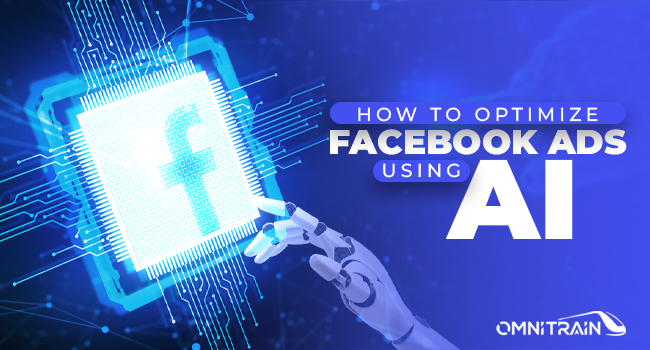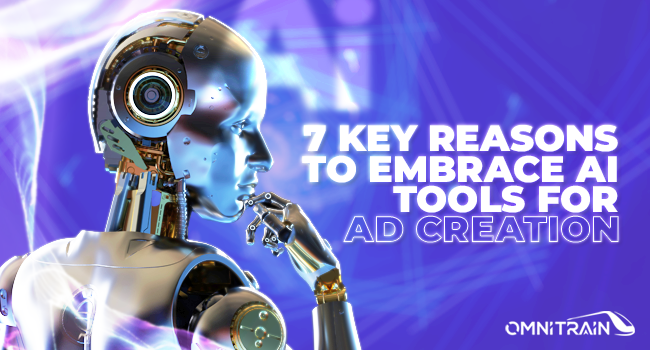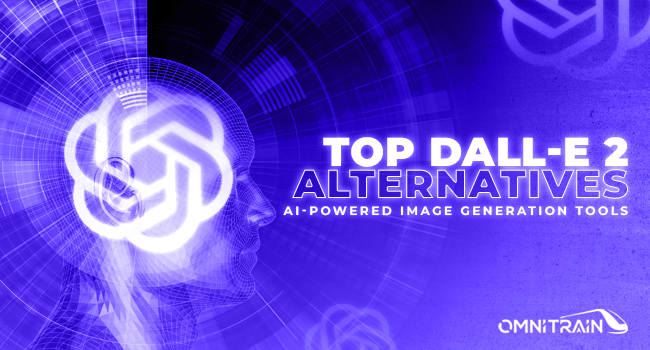AI-driven Customer Engagement: Top 5 Powerful Tips 2024
AI-driven customer engagement is revolutionizing the way businesses interact with their customers. This transformative approach uses artificial intelligence to deliver more personalized, timely, and effective customer experiences. Here’s how it can lift your customer interactions:
- Personalization: AI tailors experiences to individual customer preferences, driving satisfaction and loyalty.
- Efficiency: Automation reduces response times and frees up human resources.
- Predictive Insights: Anticipates customer needs and behaviors for proactive engagement.
- Cost Reduction: Lowers operational costs through improved efficiency and self-service options.
- Improved Communication: AI chatbots and virtual assistants provide instant, 24/7 support.
AI is not just about keeping pace with digital change, but about setting a new standard for customer satisfaction. As businesses continue to accept AI, they create richer, more meaningful interactions that foster stronger customer relationships and sustained growth. As one executive noted, the integration of AI reshapes customer expectations, signaling a shift in how businesses must approach engagement.
I’m Josh Benson, founder of OmniTrain, where I help businesses open up the power of AI-driven customer engagement to transform their customer relationships. With years of experience listening to and acting on customer needs, I’ve seen the immense potential AI holds in reshaping how businesses connect with their audiences.
The Role of AI in Customer Engagement
AI is reshaping how businesses connect with customers by offering predictive analytics, personalization, and proactive service. These elements are key to enhancing customer engagement.
Predictive Analytics
Predictive analytics uses AI to forecast future customer behavior. By analyzing past interactions and preferences, AI can identify patterns that help businesses anticipate what customers might want next. For instance, Netflix leverages predictive analytics to recommend shows and movies based on viewing habits, keeping users engaged and satisfied.
This capability not only helps in creating personalized experiences but also in identifying potential issues before they arise. Businesses can use these insights to tailor marketing efforts, ensuring they reach the right audience with the right message at the right time.
Personalization
Personalization is at the heart of AI-driven customer engagement. AI analyzes customer data to create customized experiences. Spotify, for example, uses machine learning to craft playlists that match individual tastes, increasing user engagement and loyalty.
AI can tailor interactions based on customer mood and context, offering a unique experience for each user. This level of personalization improves customer satisfaction by making them feel understood and valued.
Proactive Service
Proactive service is about anticipating customer needs and addressing them before the customer even reaches out. AI can predict when a customer might face an issue and offer solutions preemptively. This approach not only boosts customer satisfaction but also strengthens loyalty.
In customer service, AI-driven tools like chatbots provide immediate assistance, reducing wait times and improving the overall experience. These tools can handle routine inquiries, allowing human agents to focus on more complex issues, thus enhancing the quality of service.
By integrating AI into customer engagement strategies, businesses can offer more personalized, efficient, and proactive service. This not only meets but exceeds customer expectations, fostering stronger relationships and driving growth.
How AI Improves Customer Experience
AI is changing customer experience by offering tools like sentiment analysis, chatbots, and real-time support to create more meaningful interactions.
Sentiment Analysis
Sentiment analysis is a game-changer for understanding customer emotions. By using AI to analyze text from emails, chat logs, and social media, businesses can grasp how customers feel about their products or services. This allows companies to respond more empathetically and align their strategies with customer expectations.
For example, an Asian bank successfully used AI-driven sentiment analysis to improve customer service. By recognizing customer emotions and intents, they reduced service interactions by 40-50% and significantly cut costs.
Chatbots
Chatbots powered by AI are revolutionizing customer service by providing instant, 24/7 support. These bots handle simple inquiries, freeing up human agents for more complex tasks. According to G2, a whopping 68% of customers appreciate the speed of chatbot responses, highlighting the importance of instant support for customer satisfaction.
AI chatbots integrate seamlessly with CRM systems, ensuring a smooth handoff to human representatives when needed. This creates a unified and efficient service experience.
Real-Time Support
Real-time support is crucial in today’s world. Customers expect quick solutions, and AI delivers. Virtual assistants analyze customer data in real-time, offering personalized recommendations and solutions. This makes interactions feel more like conversing with a knowledgeable friend rather than a machine.
By leveraging AI for real-time support, businesses can improve customer satisfaction and loyalty. This approach not only meets customer needs promptly but also improves the overall experience.
Integrating AI in customer experience strategies helps businesses create more responsive, personalized, and efficient service. This aligns with customer expectations and builds stronger, lasting relationships.
AI-driven Customer Engagement Strategies
AI is reshaping the way businesses engage with customers. By focusing on data analysis, process automation, and contextual personalization, companies can improve their customer engagement strategies effectively.
Data Analysis
In today’s digital era, the amount of customer data available is enormous. However, making sense of this data can be overwhelming. AI steps in as a powerful ally, capable of analyzing vast datasets to extract meaningful insights. By processing web analytics, purchase histories, and social media interactions, AI can help businesses understand customer preferences and behaviors more deeply.
For example, AI-driven analytics can identify patterns in customer behavior, helping businesses to predict future trends and tailor their strategies accordingly. This proactive approach not only improves customer satisfaction but also drives business growth.
Process Automation
AI-powered process automation is changing how businesses operate. By automating repetitive tasks such as data entry, report generation, and campaign tracking, AI frees up valuable time for employees to focus on more strategic initiatives.
According to Gartner, brands leveraging AI for multichannel engagement are expected to boost operational efficiency by 25% by 2025. This increase in efficiency allows companies to provide faster and more reliable services, enhancing overall customer experience.
Contextual Personalization
Personalization is key to building meaningful customer relationships. AI excels at contextual personalization, which involves tailoring interactions based on individual customer insights. By analyzing customer data, AI can deliver personalized content, product recommendations, and communication across multiple channels.
This level of personalization makes customers feel valued and understood, fostering loyalty and long-term engagement. For instance, AI can adjust marketing messages based on a customer’s mood or past interactions, ensuring the content resonates with them at the right moment.
By embracing these AI-driven strategies, businesses can open up new levels of customer engagement, creating experiences that are not only efficient and personalized but also deeply satisfying. This sets the stage for the next section, where we will explore the challenges of implementing AI in customer engagement.
Overcoming Challenges in AI Implementation
Implementing AI in customer engagement isn’t without its problems. Companies often face challenges related to complexity, labor markets, and ethical considerations. Let’s break these down.
Complexity
The shift to AI-driven customer engagement can be daunting. With the pandemic accelerating the move to digital channels, many customers now prefer digital interactions as their first point of contact. This shift means that contact centers are handling more complex queries than before. As a result, businesses are under pressure to adopt sophisticated AI tools like conversational AI and predictive engines. These tools can transform customer service but require a solid foundation of technology and expertise.
To manage this complexity, companies should start small, perhaps by automating simpler tasks and gradually expanding AI’s role. As firms become more comfortable, they can move towards more advanced implementations, like predictive analytics for anticipating customer needs.
Labor Markets
Another hurdle is the squeezed labor markets. As businesses adopt AI, they need skilled workers to develop, implement, and maintain these technologies. However, there is a shortage of experts in AI and data science. This shortage can slow down the adoption of AI-driven strategies.
To counter this, businesses can invest in training programs to upskill current employees. Partnering with educational institutions to create AI-focused curriculums can also help build a future-ready workforce. This ensures that the talent pool grows alongside technological advancements.
Ethical Considerations
Lastly, ethical considerations are paramount. AI systems often rely on vast amounts of customer data, which raises privacy concerns. As AI becomes more integrated into customer engagement, companies must ensure they use data responsibly. Trust is crucial, and customers need to feel confident that their data is safe and used ethically.
To address these concerns, businesses should establish clear, transparent data policies. Customers should have control over their data, with options to opt-in or out of data collection. Regular audits of AI systems can help identify and eliminate biases, ensuring fair treatment of all customers.
By tackling these challenges head-on, companies can pave the way for successful AI implementation, creating customer experiences that are not only innovative but also ethical and sustainable. Next, we’ll dive into some frequently asked questions about AI-driven customer engagement.
Frequently Asked Questions about AI-driven Customer Engagement
How can AI predict customer needs?
AI can predict customer needs through forecasting and behavior analysis. By analyzing vast amounts of customer data, AI can identify patterns and trends that humans might miss. For example, e-commerce platforms use AI to study past purchases and browsing habits. This allows them to suggest products that customers are likely to buy next.
Behavior analysis goes further by examining how customers interact with a brand. AI can track which pages customers linger on, what products they view repeatedly, and even the time of day they shop. This information helps businesses anticipate what customers might want before they even ask.
How does AI improve customer service interactions?
AI improves customer service by providing empathetic responses and ensuring consistency. Through sentiment analysis, AI systems can gauge a customer’s mood based on their words and tone. This allows AI to tailor responses that feel more human and understanding.
Moreover, AI ensures that every interaction is consistent, regardless of the time or channel. This means customers receive the same quality of service whether they’re chatting online or calling in. Consistency builds trust and helps create a seamless customer experience.
What are the benefits of AI-powered chatbots?
AI-powered chatbots offer several benefits, including 24/7 support, routine task automation, and improved customer satisfaction. These chatbots can handle simple inquiries at any time of the day, freeing up human agents to tackle more complex issues.
Routine tasks like answering FAQs or checking order statuses can be automated, making service quicker and more efficient. Customers appreciate the speed and convenience, which boosts overall satisfaction. According to G2, 68% of customers value the rapid response times that chatbots provide.
By integrating these AI-driven tools, businesses can improve their customer engagement strategies, ensuring they meet modern consumer expectations.
Conclusion
In the changing world of digital marketing, OmniTrain stands out as a game-changer. By using the power of AI, OmniTrain enables businesses to create high-converting social media ads swiftly and efficiently. Our platform doesn’t just automate ad creation; it crafts ads that emotionally resonate with audiences, a crucial element in today’s saturated market.
AI-powered ad creation is not just about speed and efficiency. It’s about connecting with people on a deeper level. OmniTrain’s technology digs into the core of what makes your product or service appealing and presents it in a way that speaks to your audience’s emotions. This emotional resonance is what transforms a simple ad into a compelling story that encourages engagement and action.
Moreover, the ability to generate ads without the need for design skills democratizes the marketing landscape. Businesses of all sizes can now access high-quality, custom ads that reflect their brand’s voice and vision. This levels the playing field, allowing smaller businesses to compete with larger corporations in the digital space.
As we look to the future, the integration of AI in marketing strategies will only become more integral. The potential for AI-driven customer engagement is vast, offering businesses the tools to not only meet but exceed customer expectations. By embracing these technologies, companies can ensure they remain at the forefront of innovation and customer satisfaction.
Explore how OmniTrain can transform your ad creation process and drive meaningful customer engagement by visiting our AI-powered ad creation page. Accept the future of marketing with ads that not only capture attention but also capture hearts.











